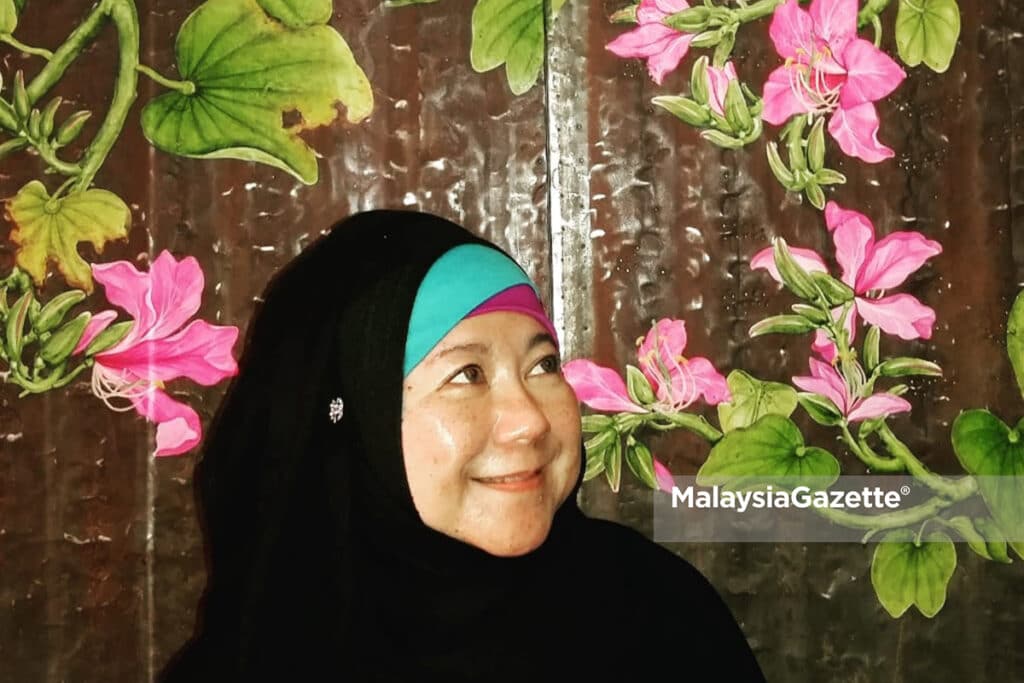 My late mother had thick and voluminous lips that many modern women wished to have, and would go under the knife to have one. Unfortunately, many of us are just not happy with what we have. We wanted what others have. Including my late mother.
My late mother had thick and voluminous lips that many modern women wished to have, and would go under the knife to have one. Unfortunately, many of us are just not happy with what we have. We wanted what others have. Including my late mother.
My late mother did not like her lips. She preferred thinner lips, like the woman with an enigmatic smile in Leonardo da Vinci’s famous painting, the Mona Lisa.
The woman in the painting was Lisa del Giocondo, of the Gherardini family of Florence and Tuscany, and wife of wealthy Florentine silk merchant Francesco del Giocondo. Lisa’s genuine smile that causes the cheeks to raise and muscles around the eyes to contract, is called a Duchenne smile, named after 19th-century French neurologist Guillaume Duchenne.
 Fortunately, I have the Duchenne smile, too.
Fortunately, I have the Duchenne smile, too.
When my late mother was pregnant with me, she would look at the painting every day, and wished for her unborn daughter to have thinner lips, just like Mona Lisa. Much to her delight, I was born with thin lips, just like Mona Lisa.
I was born too small, so she fed me so diligently. In time, I grew up to be a plump woman, just like Mona Lisa, fortunately, or unfortunately, as it depends on when and where you were born.
Back in the 16th century, plump women with roundish face are the beauty standard and are considered sexy. Being plump is a symbol of wealth and fertility among women.
Come to think of it, I must have been born in the wrong century. Had I been born in the 1500s; I would be the Beyonce of antiquity. Beautiful, rich and a bombshell!
When I was born, my mother had wanted to name me Mona Lisa. Nevertheless, when my father went to register my birth, the registration clerk misspelled my name. Instead of Mona Lisa, he wrote down ‘Naliza’ on my birth certificate.
My father did not properly check and realised it only when my late mother pointed it out. Ah, men – what can I say!
My father, in his defence, thought ‘Naliza’ is not a bad name. It is a popular name in Russia, and has good meanings in a few languages. Hence, I become Naliza, instead of Mona Lisa.
 What does my name mean?
What does my name mean?
In Russian, it means a fox – a foxy lady is an attractive woman. In Italian, it means a fighter. In Arabic, it means joy, or bounty from God. In Hebrew, it means, devoted to God. The Hebrew meaning is derived from the name ‘Elisheba’, which also refers to the lily flower – which happens to be my favourite!
Talking about flowers, in Chinese, Naliza has two meanings, according to my Mandarin language instructor from Xian, China. The first is ‘beautiful flower’ or ‘beautiful flowering tree’. The second, is ‘woman with heaps of money’. I love both meanings of my name!
Since I was young, my parents nicknamed me ‘Liza’. I have been called ‘Liza’ for 32 years of my life by my parents, family, old friends and my ex-husband.
After my ex-husband divorced me on our 7th wedding anniversary over SMS, he caused me great pain and trauma.
 In my journey to recovery, I reinvented myself. I created ‘Nel’, my new nickname as a coping mechanism, and it has worked for a long time. Nel is stronger, bolder, smarter adventurous and courageous version of me. That name has stuck with me ever since.
In my journey to recovery, I reinvented myself. I created ‘Nel’, my new nickname as a coping mechanism, and it has worked for a long time. Nel is stronger, bolder, smarter adventurous and courageous version of me. That name has stuck with me ever since.
At this day and age, I’m strong and brave enough to embrace both nicknames. A rose is a rose by any other name. I am Liza and Nel rolled into one. ‘Liza’ the beautiful flowering tree and ‘Nel’ the woman with heaps of money. I’m truly blessed with bountiful names!












